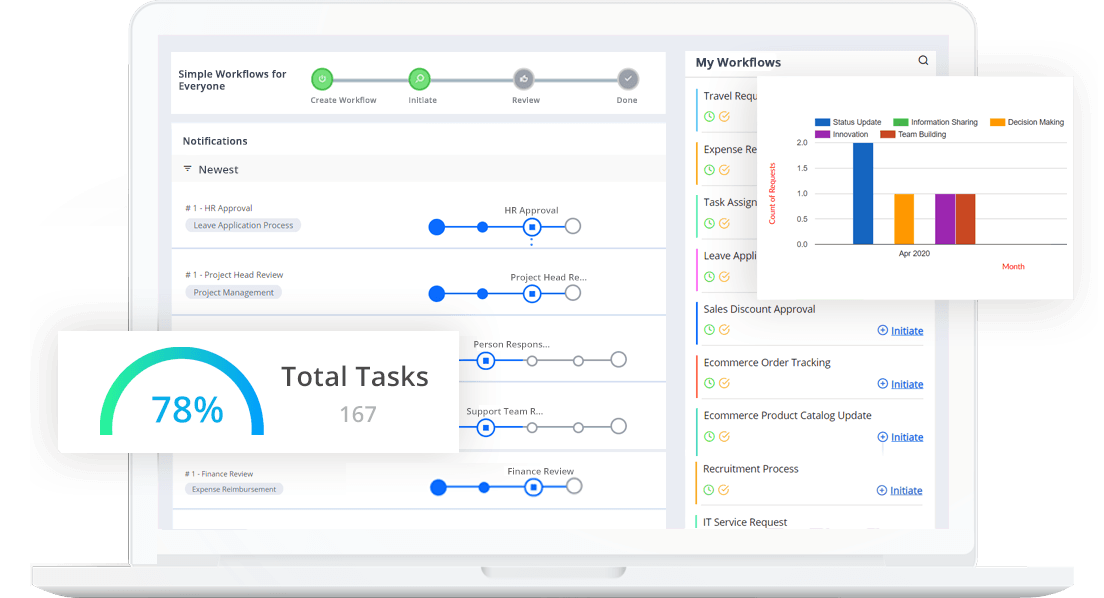Repository Management – What it is and Why Does Business Process Repository Matter?

Key takeaways
- A business process repository is a central location for storing information about how an
- enterprise operates.
- Electronic repositories range from passive containers for storing artifacts, to sophisticated tools that serve as active participants in monitoring.
- A centralized business process repository is critical to the success of the enterprise’s business process strategy.
- A repository of business processes acts like a central location that ensures continuous communication about what each process is, how it should be applied, and who is responsible for its successful execution.
What is a Central Repository in Business Processes?
A business process repository is a central location for storing information about how an enterprise operates. The information that a central repository houses may be contained in various media, including, paper, film, or electronic forms, with an appropriate storage mechanism to each type. Repository management is a type of business process management method that oversees the way in which an organization stores the information about its business processes. This blog explores repository management for business processes in detail, including details on its importance and how it helps in maintaining consistency and ease of access of information.
Business Process Repository Management in Detail
Businesses adopt a number of business process management strategies that are appropriate for their operations. These strategies take different forms from requiring individual business units or departments to document work processes to enterprise-wide adoption of business process alignment with the financial health of the organization. At one end of the spectrum are countless binders detailing individual work procedures while at the other end are automated tools used for maintaining and integrating business processes with execution of critical applications.
Across all of these strategies lies a need for documenting business processes. How an organization stores the information about its business processes provides a clue as to whether they are considered merely nice-to-have documentation or true business assets. Process documentation is mainly regarded as reference material for daily activities in the organization. The issue with documentation is that it becomes quickly outdated and adherence to standards is difficult to monitor and enforce at scale. Here is where a business process repository comes into play.
A business process repository is nothing but a centralized location for storing complete information on the operations in an enterprise. The information stored in a process repository may be contained in various media forms like paper, electronic forms, or films. Examples of electronic repositories include passive containers that store process artifacts, sophisticated tools that serve as active participants in monitoring, executing, and reporting on business processes. These tools come in the form of document management systems, process modeling tools and business process management systems.
Business process repository management includes activities like storing, maintaining, and changing process knowledge objects for an enterprise. Process knowledge includes objects, relationships, dependencies, enablers, attributes, business rules, performance measures, and models. Repository management also includes activities like creating a repository structure, defining and maintaining procedures to ensure changes are controlled, validated, and approved; mapping processes to applications and data; and providing the necessary infrastructure to enable effective and consistent use of the models in the repository.
Repository management includes activities that ensure that –
- Adequate measures are taken to protect the integrity and physical security of the repository
- It performs at an optimal level
- Access to the repository is controlled and meets defined availability requirements
- Standards and administration procedures meet the needs of the organization and are adhered to
Importance of Repository Management
A centralized business process repository is critical to the success of an enterprise’s business process strategy. The importance of having a business process repository can be understood by the following –
- A repository provides a blueprint to manage and control how process change is introduced and implemented into the enterprise.
- The process repository also becomes the system of record for information on process ownership, technological enablers, business rules and controls.
- The repository serves as primary documentation on the enterprise’s business processes or may be used to simulate various scenarios to evaluate process improvements and to detect and analyze problems.
- Information obtained from process repositories may be used to identify and validate the appropriate solution.
- Advanced repositories may also be interfaced with the enterprise’s applications to enforce defined business rules.
- A process repository facilitates collaboration and communication among team members, departments, and even external stakeholders. Users can easily access and contribute to process documentation, which ensures that everyone is working on the same page and working towards the same objectives.
- A repository acts as a single source of truth for capturing and disseminating best practices across the organization. A standard process library of models and templates is provided by the repository and it enables businesses to adhere to industry standards and comply with regulations.
- A process repository acts as a source for understanding and optimizing customer journeys, which is the basis for delivering exceptional customer experiences.
- A business process repository is an invaluable tool for improving process performance and efficiency. When combined with other process excellence initiatives like process mining, organizations can objectively analyze process performance and identify bottlenecks and inefficiencies.
- Control over the business process is essential for mitigating risks and ensuring compliance. The process repository allows businesses to define, document, and enforce controls within their processes.
5 Steps to Better Repository Management
Help people understand how they benefit from repository management.
Each area of the business would require a compelling case of their own to use process repositories. The team members need to see the improvements to their working life that a central process repository provides. Each area of the business will have a use case that can be expressed in terms of how useful the repository can be for the team’s performance.
Establish a common language for change.
Implementing new business processes or process improvements is as much a change management process as it is a technical one. The same applies when you are consolidating or collecting your business processes into a repository. Here, it is important to ensure that all the staff within the organization are able to recognize the elements within any given process. Using a globally recognized system like BPMN helps establish a common language for change.
Provide appropriate infrastructure.
A basic requirement that is commonly overlooked while establishing a process repository. The entire team must have the tools and the access required to make use of the repository.
Switch to a process culture.
This is an extension of the establishment of a common language. Once people in the organization are able to explain the way they do their work in a commonly understood form, it is a natural progression to collaboratively consider ways to improve. A process culture where staff are able to think about their work from a process-first perspective that develops organically.
Realize the value add repository brings to the process.
Once you have a stable process repository in place, where all the staff can access a mutually-understood set of business processes. The actual benefit of process repositories is in the capacity for ongoing improvements. Measuring the usefulness of the process repository by surveying staff and quantifying the time and resources saved through process consolidation is vital.
End-to-end workflow automation
Build fully-customizable, no code process workflows in a jiffy.
Process Management Repository Administration
Administration of the business process repository is a critical aspect of managing a business, and must be given importance as the admin of any other company asset. As the blueprint of process management, process repository not only provides a common frame of reference, but also provides a system of record of information on process ownership, technological enablers, business rules and controls, both financial and operational. Effective and consistent management of process repositories is critical to developing and maintaining the holistic nature of the enterprise’s processes through promotion and acceptance of their cross-functional nature. The benefits of having a centralized process repository are –
- Efficiency gains – Repositories help organizations to streamline their operations, reduce waste, and improve productivity.
- Risk mitigation – Control frameworks mean that organizations can design processes in such a way that errors, fraud, and non-compliance issues are prevented.
- Continuous improvement – The repository provides a platform for sharing best practices, analyzing process performance, and identifying areas for improvement.
- Improved customer experience – Teams can use repositories to gain insights into customer preferences, pain points, and expectations, which help in aligning processes with customer needs.
Conclusion
Repository management for business processes must be taken as seriously as managing any other asset of the company. Business process repositories may be considered as the blueprint for process management within the organization. Effective and consistent management of process repositories is crucial for developing and maintaining the holistic nature of the enterprise’s processes. A no code workflow automation solution like Cflow provides comprehensive document management features that help in effective maintenance of process repositories. You can scan, store, and manage all your process documents easily with Cflow. Ready to explore Cflow? Sign up for the free trial today.
What would you like to do next?
Automate your workflows with our Cflow experts.



